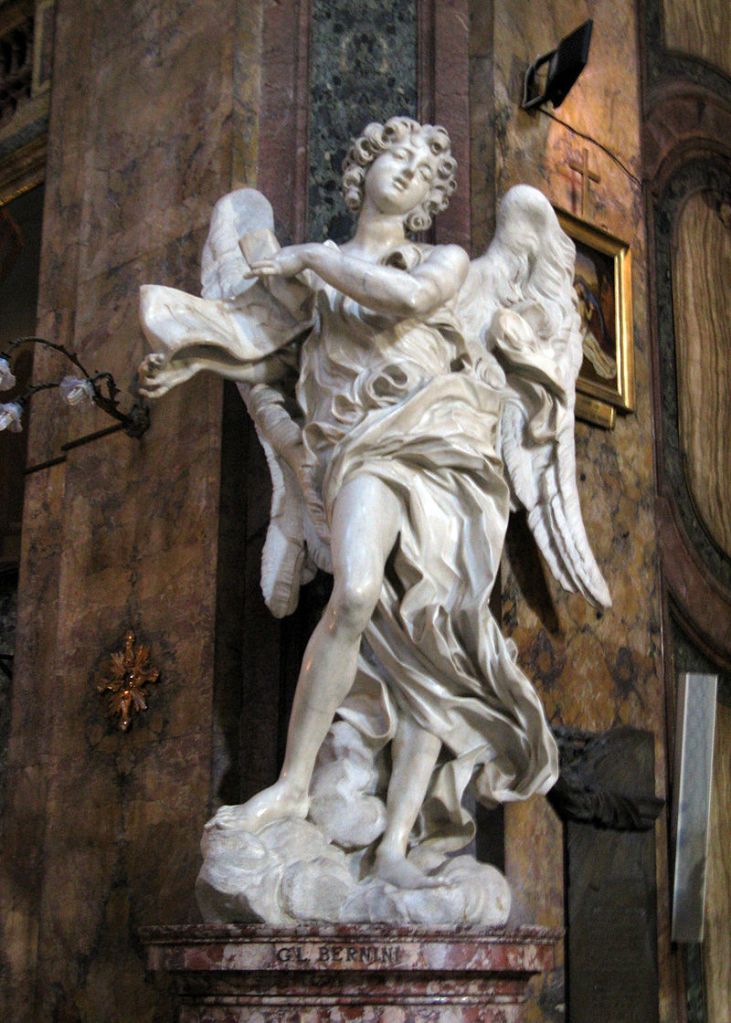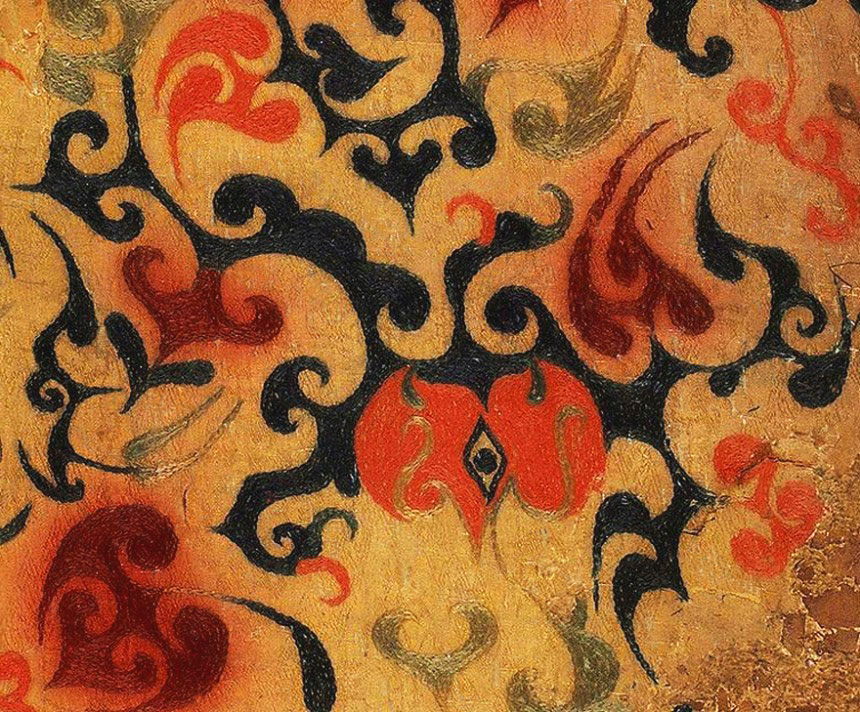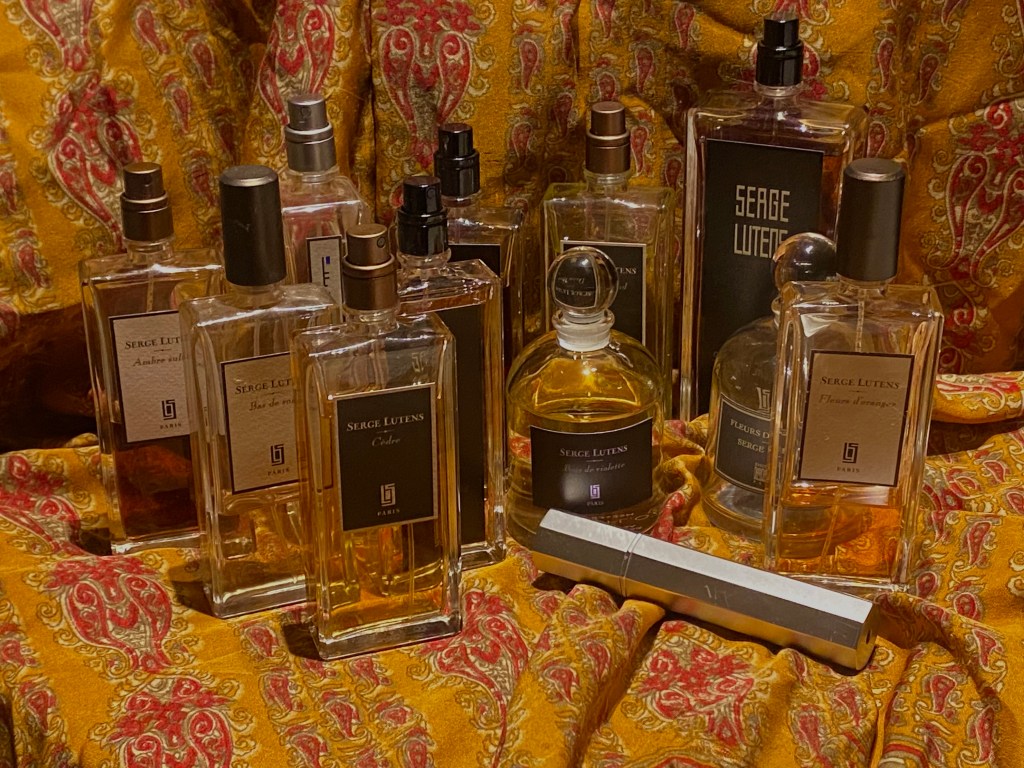Scent Semantics no. 3
Luscious adj.: 1. a) having a delicious taste or smell: SWEET, b) archaic: excessively sweet: CLOYING, 2. Sexually attractive: SEDUCTIVE, SEXY, 3. a) richly luxurious or appealing to the senses, b) excessively ornate
This third monthly Scent Semantics entry was given by yours truly. I had thought long and hard about adjectives used in perfumery, and how they could apply to some of my own personal favorite perfumes while being open to interpretation and imagination by my fellow bloggers.
So … luscious it was. Luscious is the antithesis of frugal, penitentiary January, luscious, in fact, to my twisted mind the closest thing to Albert Camus’ famous quote, very much appropriate to my own current mood:
In the depth of winter, I finally learned that within me there lay an invincible summer.
To my mind, to my soul and above all to my nose, ‘luscious’ and ‘invincible summer’ are epitomized in the perfume I chose.
The Invincible Summer
One day in 2017, I was in a doldrum mood, when a review of a perfume written by a very dear friend ticked into my inbox. In the perfume world, we have lemmings – those metaphorical moments when a perfume writer’s evocative words make you want to hurl yourself off a cliff of insolvency and blow the rent check – on a perfume. I told him as much, and we laughed about it later.
The perfume in question was Perris Monte Carlo’s Ylang Ylang Nosy Be.
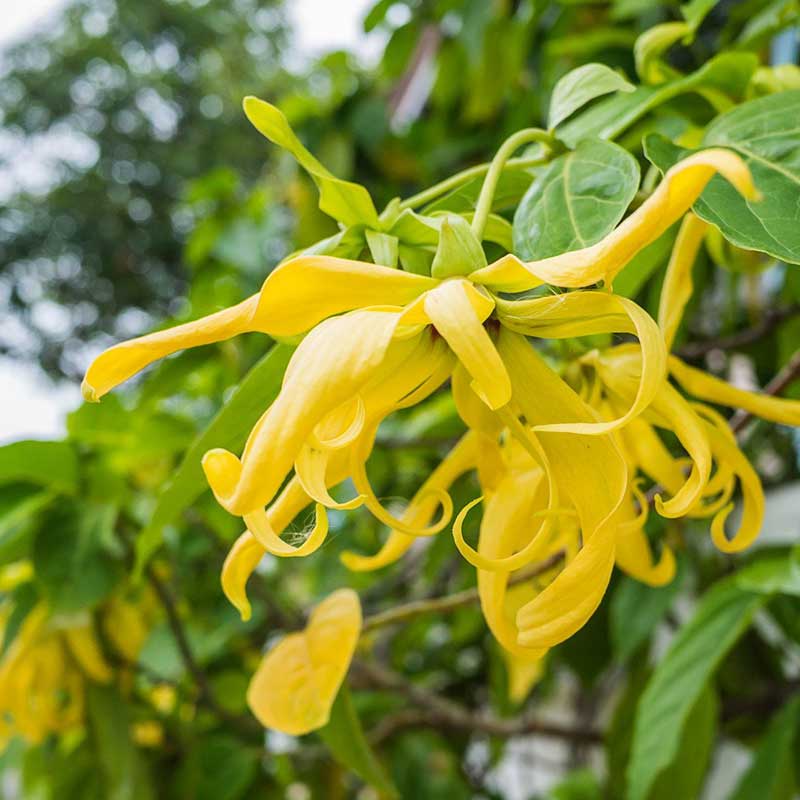
Ylang ylang is a wondrous tropical bloom, resembling nothing so much as a flower from another planet entirely. Loudly, proudly yellow-gold-green, it has an intensity of scent few other flowers can match. Long before it became the main floral featured in Chanel no. 5, it was utilized in a hair oil called macassar (from Madagascar, one of the main sources of ylang ylang essential oil) oil, because it was believed that it promoted hair growth in men, which led to the invention of the ‘antimacassar’ – those crocheted lace doilies draped over the back rests of armchairs, to protect the upholstery.
Since my childhood, you could always have me at ‘Madagascar’. Off the northeastern tip of Madagascar is the island of Nosy Be, or ‘big island’ in Malagasy, long a source of the finest ylang ylang and vanilla beans and by all accounts I’ve ever read, i.e. most of them, Nosy Be is a highly fragrant place, like all tropics everywhere.
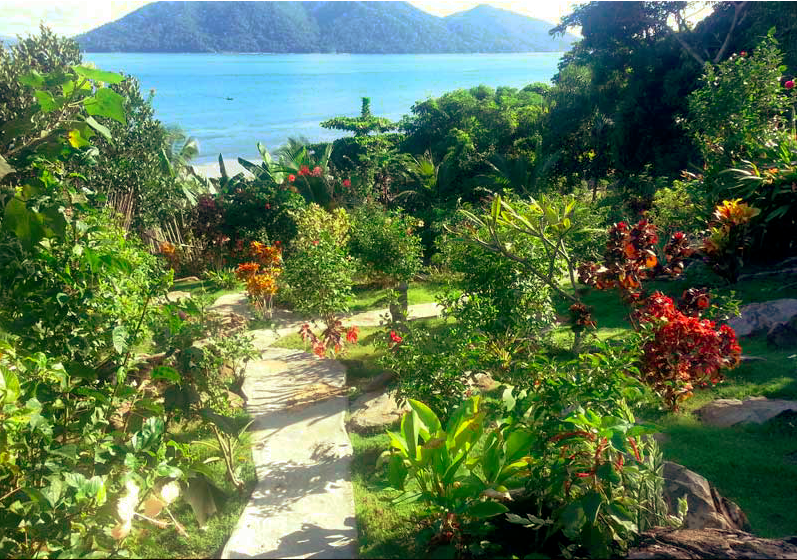
There I was a year and a half ago, when an unloved bottle of Ylang Ylang Nosy Be popped up on a FB perfume group for sale at a very advantageous price for an impecunious teaching student. I thought of that review, of that friend, now lost, with his galaxy-sized appetite for life and for beauty, and surely, it was HIS ghost who prodded me (not softly) and whispered:
BUY IT. OR ELSE. A LIFETIME OF REGRET.
I got his posthumous message, and didn’t even need a Ouija board to hear it.
So I did.
I wore it for my history didactics final exam that June, despite the loud complaints of my Gen Z exam partner, who claimed it was ‘distracting’. At least, it distracted him.
I have loved a few ylang ylang perfumes in my life. But YYNB is the lushest, plushest, most luscious of them all.
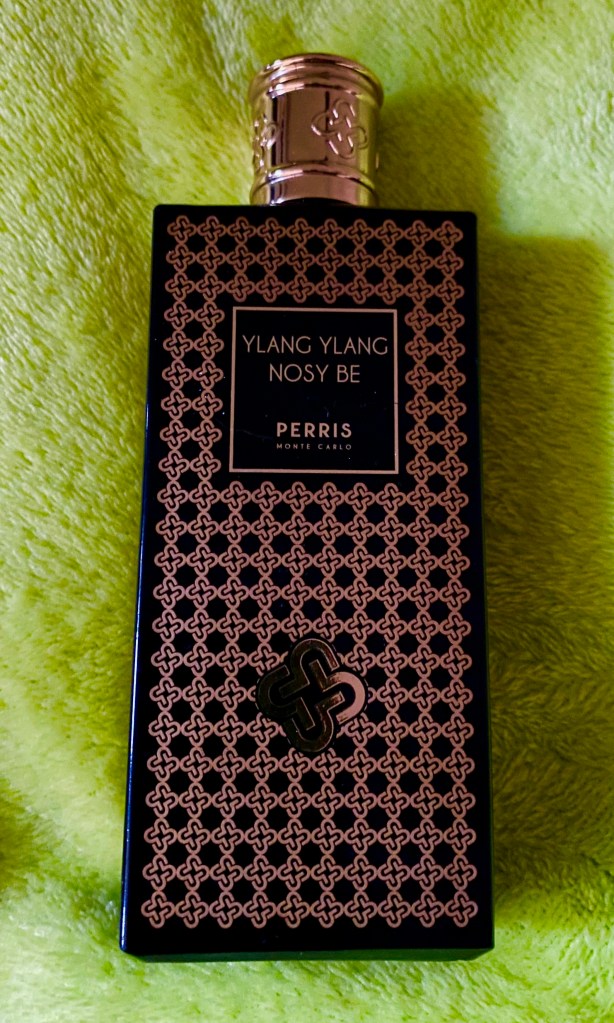
Ylang ylang is front, center, top, bottom and drydown here, given a few nudges by jasmine, rose and orange blossom, but you’ll find no banana custard in these yellow-green-gold blooms, and the other florals serve mainly as a chorus line. It is ALL about the ylang ylang. Unless you love it, you might find it a tad overpowering. It has a green and nearly mentholated, sharp opening helped by grapefruit, lemon and cardamom, but the sharpness fades in seconds, and you’re left with a superlative, golden yellow silk velvet bloom, gilded around the edges with a thick Bourbon vanilla that never steals the show, but sings ylang praises to the sky and straight into your shamazing sillage. It is, like the flower itself, sweet but neither sugary nor gourmand. On clothes, it has incredible staying power, on skin, a good 12+ hours – and that’s the eau de parfum, mind you. Sillage for d-a-y-s. Seductive – certainly. One man of my acquaintance loves it. It turns my cat into a snuggle monster, and he already is.
To get back to my Merriam-Webster definition of luscious: it has a delicious smell, it is sexy and seductive af, and emphatically ‘richly appealing’.
It’s my personal tropical escape hatch, and the antithesis of frugal, penitential January.
It is, in a word, luscious.
What perfumes would YOU describe with ‘luscious’?
In memory of Robert Hermann
Perfumer: Jacques Fleuri, with Gian Luca Perris.
Notes: Ylang ylang, cardamom, grapefruit, lemon, ylang ylang, jasmine, orange blossom, damask rose, ylang ylang, vanilla, labdanum, vetiver, cedar, field scabious
Don’t miss the other contributors to the Scent Semantics perfume project!
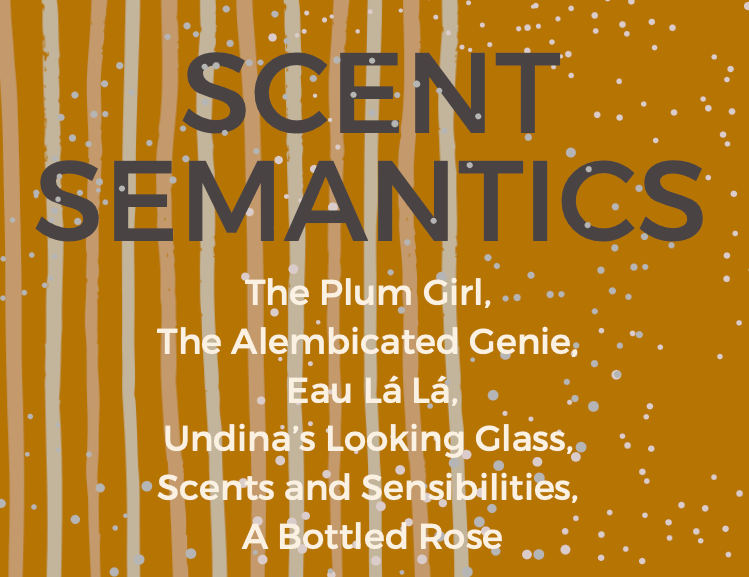
Elena https://theplumgirl.com
Daisy https://eaulalanyc.com and https://www.instagram.com/coolcookstyle/?hl=en)
Undina https://undina.com
Old Herbaceous https://scentsandsensibilities.co
Portia https://abottledrose.com

